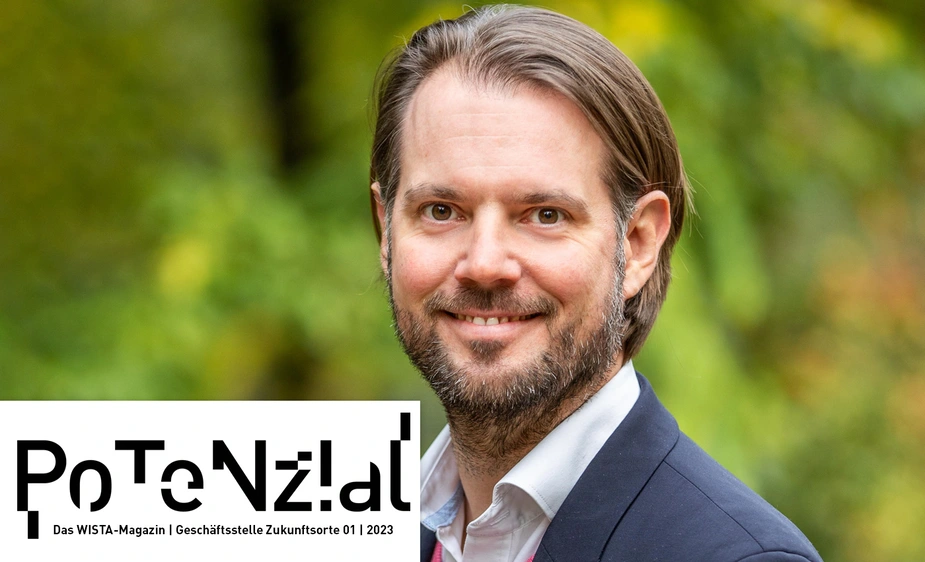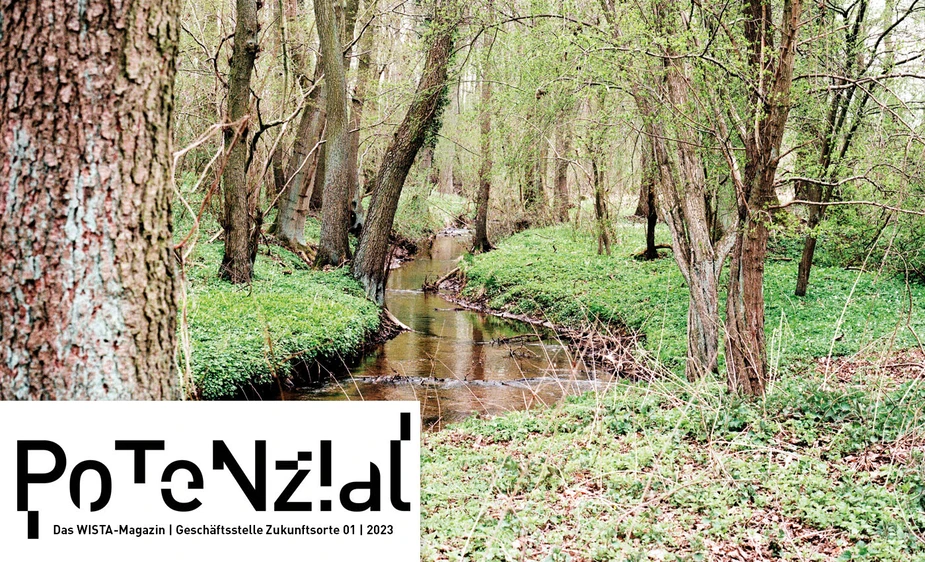An ecosystem for the transition to green chemistry
The “GreenCHEM” initiative aims to establish the capital’s metropolitan region as a European centre for green chemistry
Three universities, two chemical companies, and a growing network of industry and research are planning to establish the capital’s metropolitan region as a European centre for green chemistry. The federal government is funding the GreenCHEM initiative with ten million euros.
Martin Rahmel knows a thing or two about ecosystems. For years, the industrial engineer with a focus on technical chemistry has been campaigning for the reintroduction of Atlantic salmon to Brandenburg's waters on a volunteer basis. With scientific advice, professionalism, and the patience of a saint, he is pursuing this goal as a member of Fario e.V., despite all the setbacks that are associated with introducing a species that has become extinct through human intervention. “Salmon requires an intact, diverse ecosystem. It’s not enough to simply purchase and release young salmon because its migration is influenced by genetic effects,” he explains. His organisation, therefore, operates its own hatchery, which is also on a purely volunteering basis.
Rahmel’s day job, too, is all about diversity, intact ecosystems, and promoting young talent. He is the founder of multiple chemical start-ups and the CEO of the Chemical Invention Factory at Technische Universität Berlin (TU). Under the moniker John Warner Center for Start-ups in Green Chemistry, the Factory aims to create ideal conditions for university spin-offs to swiftly transfer sustainable and circular chemistry research findings into the markets. This is an ecosystem equipped with laboratories, enabling young chemists to venture into entrepreneurship. The TU teaches them the fundamentals to do so as part of their university studies.
Knowledge transfer can be planned
This nucleus for the Chemiewende, the transition to green chemistry, is on the cusp of spreading across the capital’s metropolitan region. It is part of “GreenCHEM”, aninitiative that wants to establish the Berlin-Brandenburg region as a transfer region for green chemistry. Recently, it has received a funding commitment of over 10 million euros to this end from the Federal Ministry of Education and Research (BMBF). Martin Rahmel is its coordinator. Here, too, he has an ecosystem in the back of his mind in which industry, scientific institutions, and start-ups jointly exchange knowledge and tackle innovation. Among the “GreenCHEM” initiators are the Free University of Berlin (FU), Humboldt-Universität zu Berlin, and the two companies Covestro and BERLIN-CHEMIE. More and more regional actors from science, industry and business promotion are joining the group of founders, including WISTA Management GmbH.
Together, they want to redirect the linear world of chemical industry processes, based to almost 90 percent of fossil resources, into a circular one. The aim is to use renewable materials in closed material cycles – and to avoid toxic compounds. Already, 29 regional partners have joined their ranks to make the best-possible use of natural resources, instead of depleting them. Among other things, process water is to be treated so thoroughly using innovative methods that no residual substances remain in it. The key to doing so is to accelerate and expand the exchange of knowledge. “In our dialogue with the industry, we often hear about problems for which there are already solutions in place,” says Rahmel. For this reason, GreenCHEM is aiming at a transfer in both directions: University research is to push findings and ideas into the markets. In turn, the associated industrial companies should communicate their unsolved problems with the network. “Then, start-ups and universities can set out to search for solutions,” he says.
The goal is a self-sustaining ecosystem
Developing new formats for exchange and low-threshold cooperation are but two of the goals of the initiative. For the actors, this means to quickly get into trying things out and then rapidly scaling up working ideas to an industrial level with the help of a highly flexible range of laboratory space. Nobody should work reinventing the wheel and so the initiative also scans current transfer research – and adjusts its finding to match the specific requirements of the chemical industry. Ultimately, it’s like salmon. It is important to create an intact environment to make the ecosystem self-sustaining in the long term. With his arduous repatriation project spanning many years, Rahmel has proven that he has the patience needed for the job. His association is now frequently seeing adult fish that come to Brandenburg for spawning.
Von Peter Trechow für POTENZIAL
- More about the GreenCHEM initiative in this video
- More info on the Atlantic salmon repatriation project: www.farioev.de

